Racism?? In Finland!!??
Trouble in the “World’s Happiest Nation.”
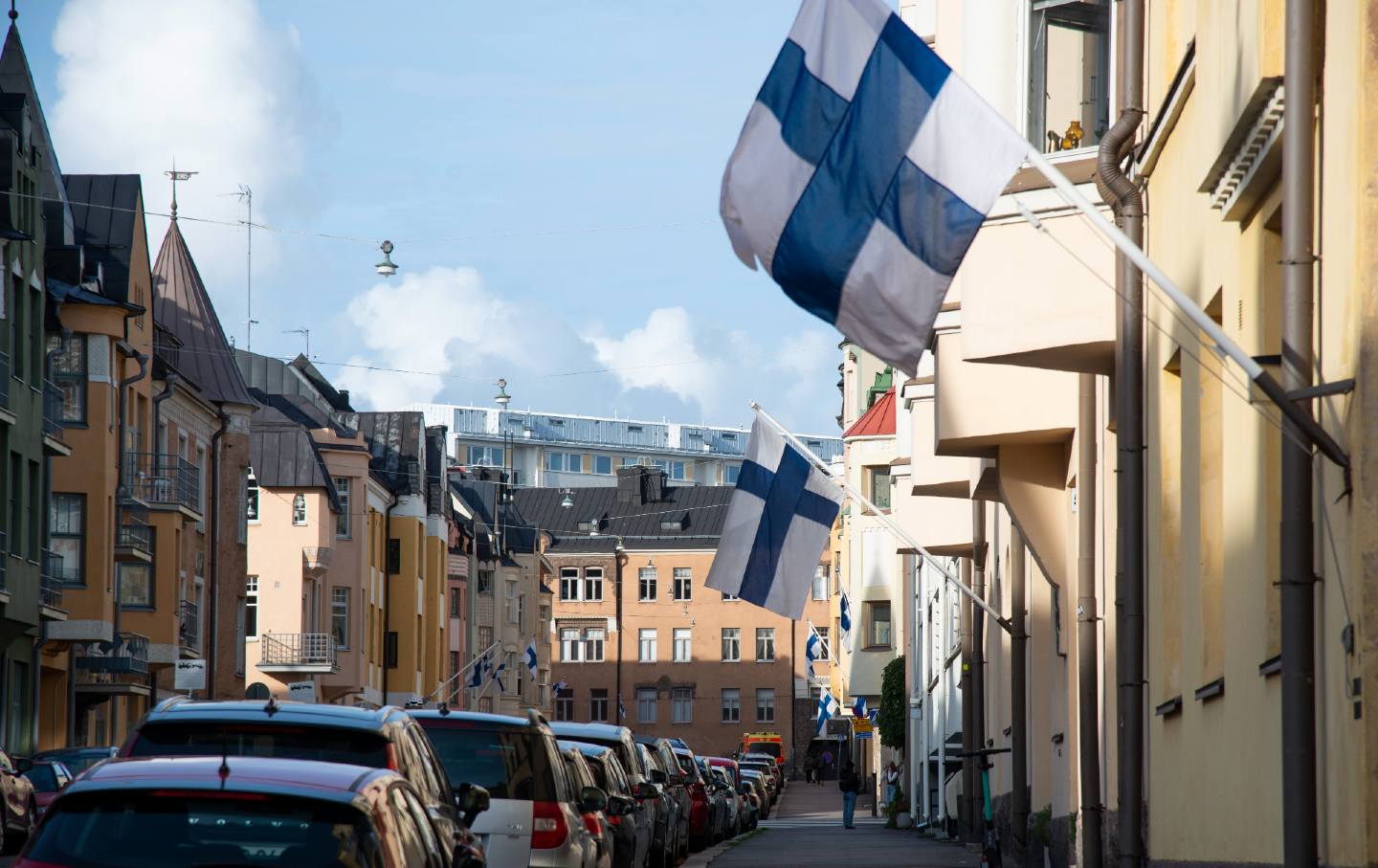
Helsinki—Racism doesn’t come readily to mind when you think of Finland. The country has been lauded—justifiably so—as the plucky nation that joined NATO last spring, defying neighboring Russia; it is considered a model social democracy. For six straight years, it came out on top of the World Happiness Report issued by the United Nations Sustainable Development Solutions Network. But racism, though rarely discussed, has long been a fact of life here. A 2018 EU survey of minority views in 12 EU nations found that Finland ranked first for racial discrimination, racist threats, and violent attacks.
But racism was never on Finland’s political agenda until the far-right Finns Party—think Marine Le Pen’s National Rally in France or Alternative for Germany—finished second in last April’s election. It’s now a powerhouse in the most right-wing government in recent history.
Like their right-wing counterparts across Western Europe, the Finns’ calling card is opposition to immigration—more precisely, non-white immigration. While the party has greeted Ukrainian refugees with open arms, it has posted a “not welcome” sign for Middle Eastern and African asylum-seekers. That posture violates basic human rights. It also spells disaster for a country that badly needs immigrants to bolster a sagging economy.
In no other EU nation except Italy does such an openly racist party hold the reins of power. “People who have consistently made racist statements are now running government departments. This could lead to normalizing racist views,” Aleksi Neuvonen, cofounder of Demos Helsinki, a nonpartisan social policy think tank, explained.
Finnish politics is usually a dozy affair, but this has been the summer of bombshells. In June, just days after the new cabinet had been announced, the government was engulfed in a series of crises, triggered by racist and neo-Nazi slurs from newly minted Finns Party cabinet members.
The economics minister, Vilhelm Junnila, was immediately in trouble because of his neo-Nazi ties. He spoke at a 2019 gathering of the who’s who of neo-Nazis in Finland, organized by the Nordic Resistance Movement, a terrorist organization bent on establishing a totalitarian neo-Nazi Nordic state. And while campaigning this spring, he joked about the number 88, code for the greeting “Heil Hitler.”
When the story broke, Junnila barely survived a no-confidence vote in Parliament. But after the Helsinki Sanomat, the New York Times of Finland, unearthed a speech he had delivered in Parliament that exhorted African women to have abortions as a solution to the climate crisis—“climate abortion,” he called it—he resigned. He had been on the job for just 10 days.
Junnila’s successor, Wille Rydman, has a similarly scurrilous track record. In messages to a former girlfriend that were published in the Sanomat, Rydman described Somalis as “spreading like weeds” and derided people from the Middle East as “apes” and “desert monkeys.” When his girlfriend said that if she had a child she’d like to give it a biblical Hebrew name like Emmanuel, he responded that “we Nazis do not really like that kind of Jew stuff.” Far from resigning, Rydman took the offensive—taking a leaf from Donald Trump’s playbook, he threatened to sue the newspaper for invading his privacy.
Deputy prime minister and Finns Party leader Riikka Purra wrist-slapped Rydman, calling his messages “inappropriate.” But Purra is hardly one to talk. In text messages posted 15 years ago on a far-right forum, she fantasized about like-minded Finns “in the stadium spitting on beggars and beating black children.” After a slanging match with immigrant teenagers, she wrote that “if they gave me a gun, there would be bodies on a commuter train.”
The new coalition government was elected on a pledge to cut welfare benefits in order to balance the budget, and Prime Minister Petteri Orpo dearly wants Parliament to focus on that agenda. Days before the autumn parliamentary session, which began on September 5, the government issued an anti-racism plan. It’s big on platitudes and generalizations but short on specifics, as you would expect from any document that the Finns Party was willing to accept. Some of the proposed initiatives, like a program to promote equality in the education system, sound promising. But the minuscule €1–1.5 million commitment, coupled with the government’s plans to increase tuition for foreign students and limit immigrants’ access to social benefits, give the game away.
The first order of business for the new session of Parliament was the anti-racism plan. The prime minister was content to deliver homilies about the necessity of eradicating racism. He sought a “common tone,” but Finns MPs weren’t having it. Jani Mäkelä, the Finns parliamentary party leader, had nothing to say about racism. Instead, he railed against the immigrant gangs that allegedly bully native-born Finns and a woke culture that, he claimed, condemned everything from board games to Eskimo ice cream bars as racist.
The opposition hit back hard, flagging the gap between the government’s words and its deeds. “Racist texts are at the heart of the conversation,” said one MP. “I’ve been spat on at a bus stop,” said Greens MP Fatim Diarra. “You have created an atmosphere of fear in Finland just because you are afraid of being different.”
Popular
“swipe left below to view more authors”Swipe →These passionate pleas went unheard—when the opposition introduced a series of “no confidence” motions, the government had the votes to beat them back. But if government ministers believed that the race issue would fade away when the “no confidence” motions were defeated, they were mistaken.
A highly placed government official, who requested anonymity so that he could speak candidly, told me that because of the brouhaha over racism and xenophobia, multinational corporations that had planned to make major investments in Finland are now having second thoughts.
What’s more, popular outrage over the racist Finns Party leaders and the vapidity of the government’s anti-racist agenda has surfaced. On a sunny September day, 11,000 Finns marched down Mannerheimintie, Helsinki’s Fifth Avenue, to protest racism and fascism in Finland. A rally on this scale is unheard-of in the land of Nordic calm, and while the atmosphere was end-of-summer upbeat, the message was blunt. ”Tolerating racism is racism,” the banners read. ”Racists out.”
This demonstration wasn’t a one-shot affair. Six weeks earlier, a crowd of 5,000—twice as many as the organizers of the event anticipated—had delivered the same message. And more marches are in the works—it’s Moral Monday in Helsinki.
“This is the biggest values challenge in generations,” Laura Saarikoski, editor of the Sanomat, told me. For Finland, it’s an existential moment, since what is at stake is the soul of the happiest nation in the world.
Thank you for reading The Nation!
We hope you enjoyed the story you just read, just one of the many incisive, deeply-reported articles we publish daily. Now more than ever, we need fearless journalism that shifts the needle on important issues, uncovers malfeasance and corruption, and uplifts voices and perspectives that often go unheard in mainstream media.
Throughout this critical election year and a time of media austerity and renewed campus activism and rising labor organizing, independent journalism that gets to the heart of the matter is more critical than ever before. Donate right now and help us hold the powerful accountable, shine a light on issues that would otherwise be swept under the rug, and build a more just and equitable future.
For nearly 160 years, The Nation has stood for truth, justice, and moral clarity. As a reader-supported publication, we are not beholden to the whims of advertisers or a corporate owner. But it does take financial resources to report on stories that may take weeks or months to properly investigate, thoroughly edit and fact-check articles, and get our stories into the hands of readers.
Donate today and stand with us for a better future. Thank you for being a supporter of independent journalism.
Thank you for your generosity.
More from The Nation
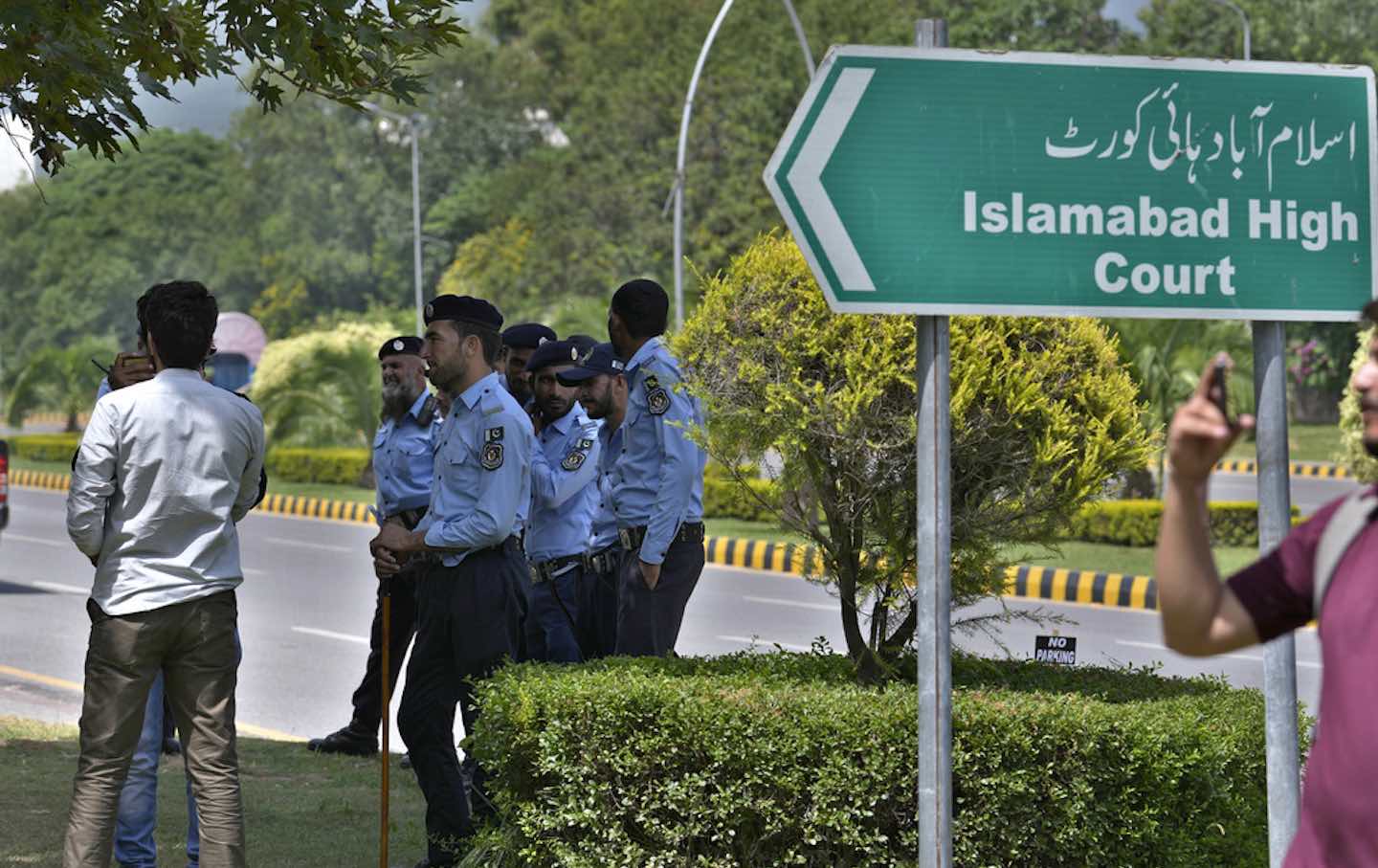
Pakistani Judges Have Accused Military “Intelligence Operatives” of “Coercion or Blackmail” Pakistani Judges Have Accused Military “Intelligence Operatives” of “Coercion or Blackmail”
Six judges alleged that the Pakistan Army attempted to influence their verdicts, with now-imprisoned former prime minister Imran Khan at the center of the controversy.
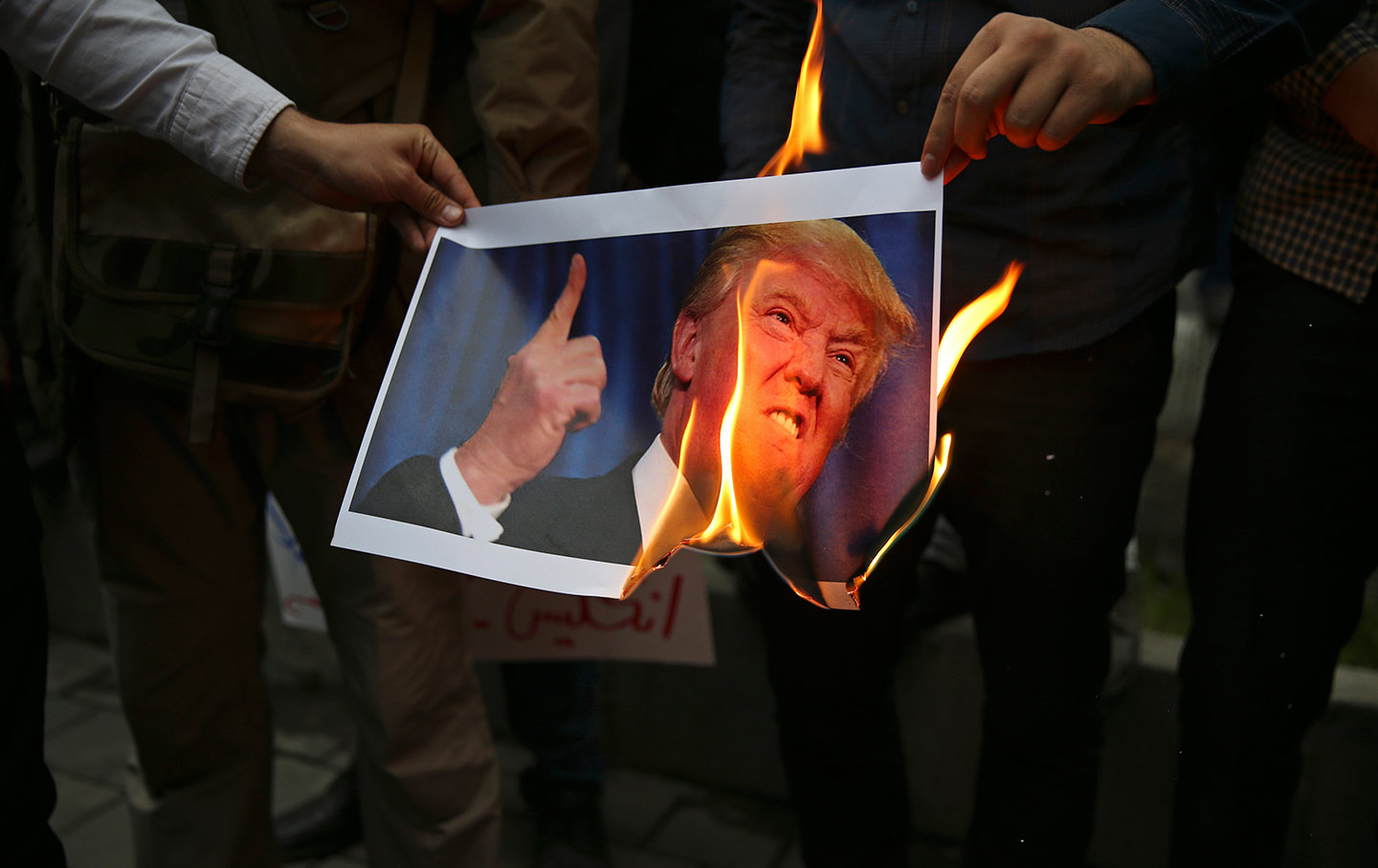
Biden’s Failure to Rejoin the Iran Nuclear Deal Was an Unforced Error Biden’s Failure to Rejoin the Iran Nuclear Deal Was an Unforced Error
The question remains: Could some version of it be salvaged in 2025?

If Joe Biden Really Wants to Celebrate Press Freedom, He Should Free Julian Assange If Joe Biden Really Wants to Celebrate Press Freedom, He Should Free Julian Assange
Joe Biden will celebrate World Press Freedom Day tomorrow. But it is a safe bet that he'll have nothing to say about Assange or Imran Khan, both behind bars for defying the US.

The Ukraine Aid Package Heightens the Risk of Escalation The Ukraine Aid Package Heightens the Risk of Escalation
The passage by Congress of the latest aid package to Ukraine was met with cheers, but there is ample reason for caution.
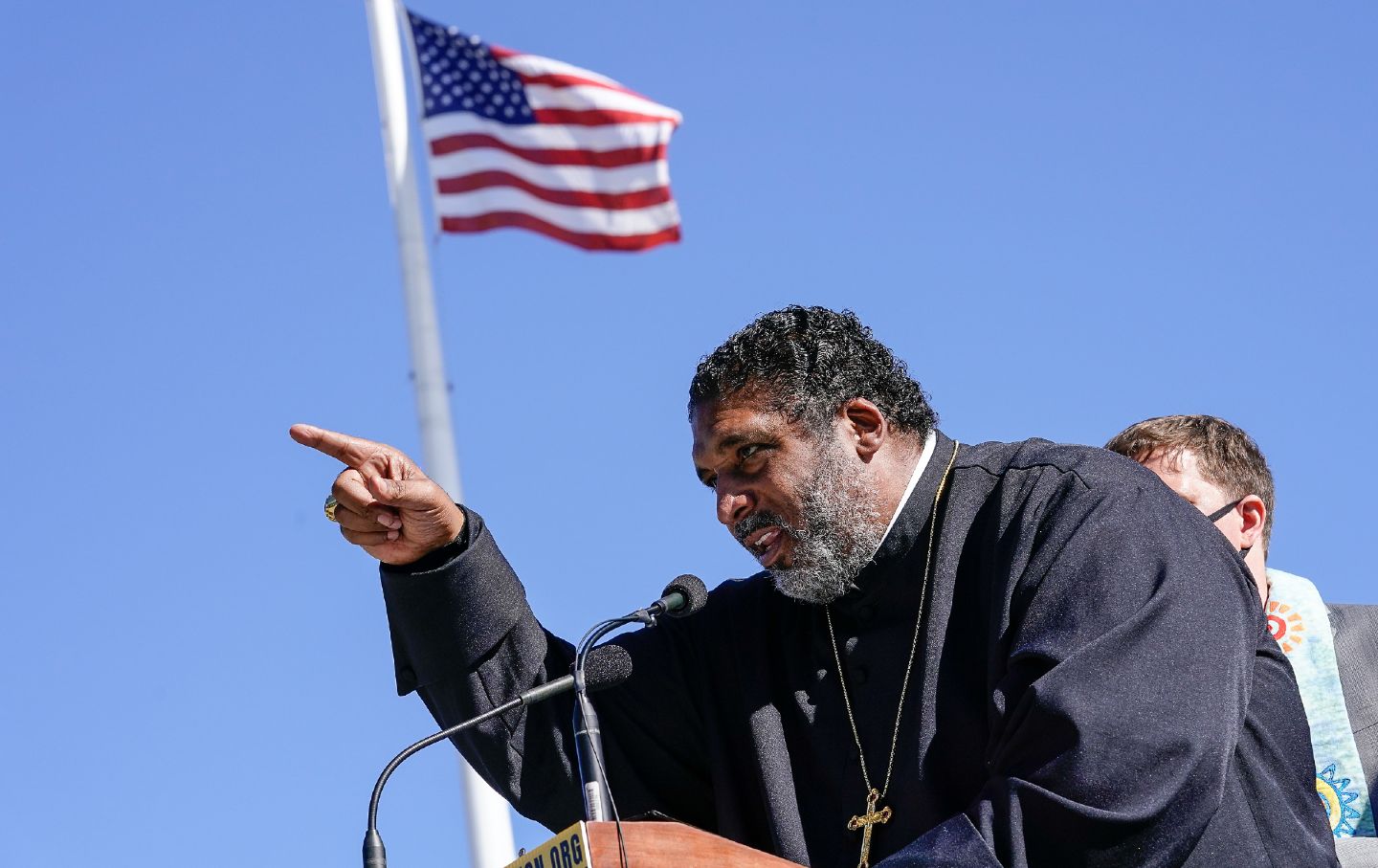
War, Genocide, Violence, and the Gospel’s Response War, Genocide, Violence, and the Gospel’s Response
I come asking with brother Marvin Gaye, “What’s going on? What’s going on?”
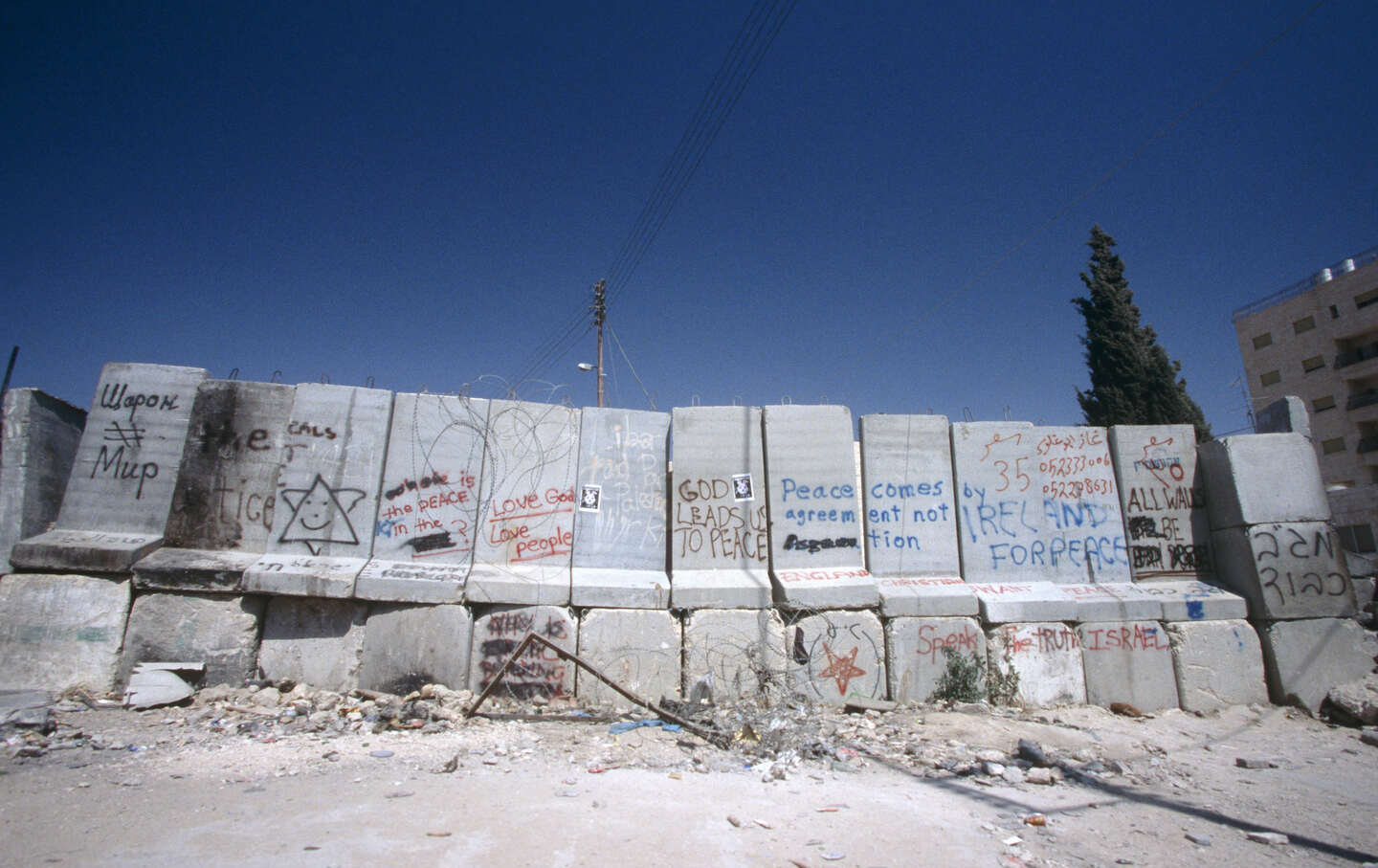
Can We Build a Shared Homeland for Israelis And Palestinians? Can We Build a Shared Homeland for Israelis And Palestinians?
In this conversation, Jon Wiener and May Pundak of A Land For All discuss a road map for a better two-state solution.


